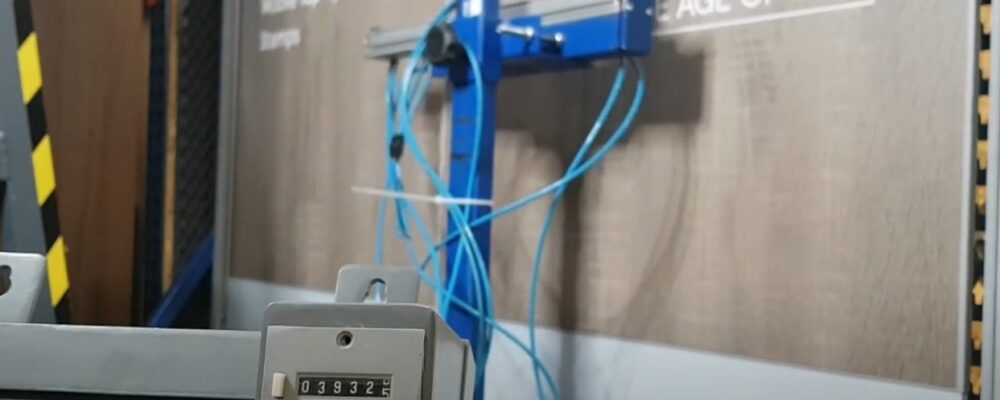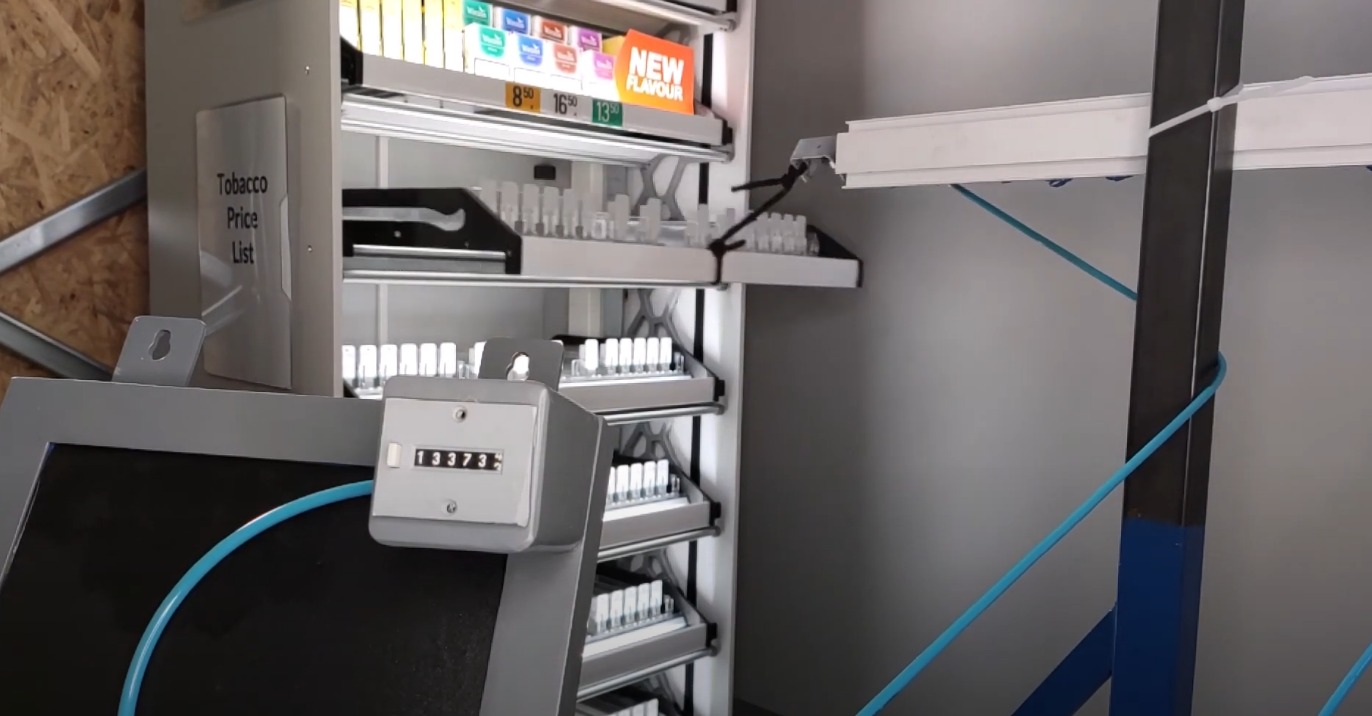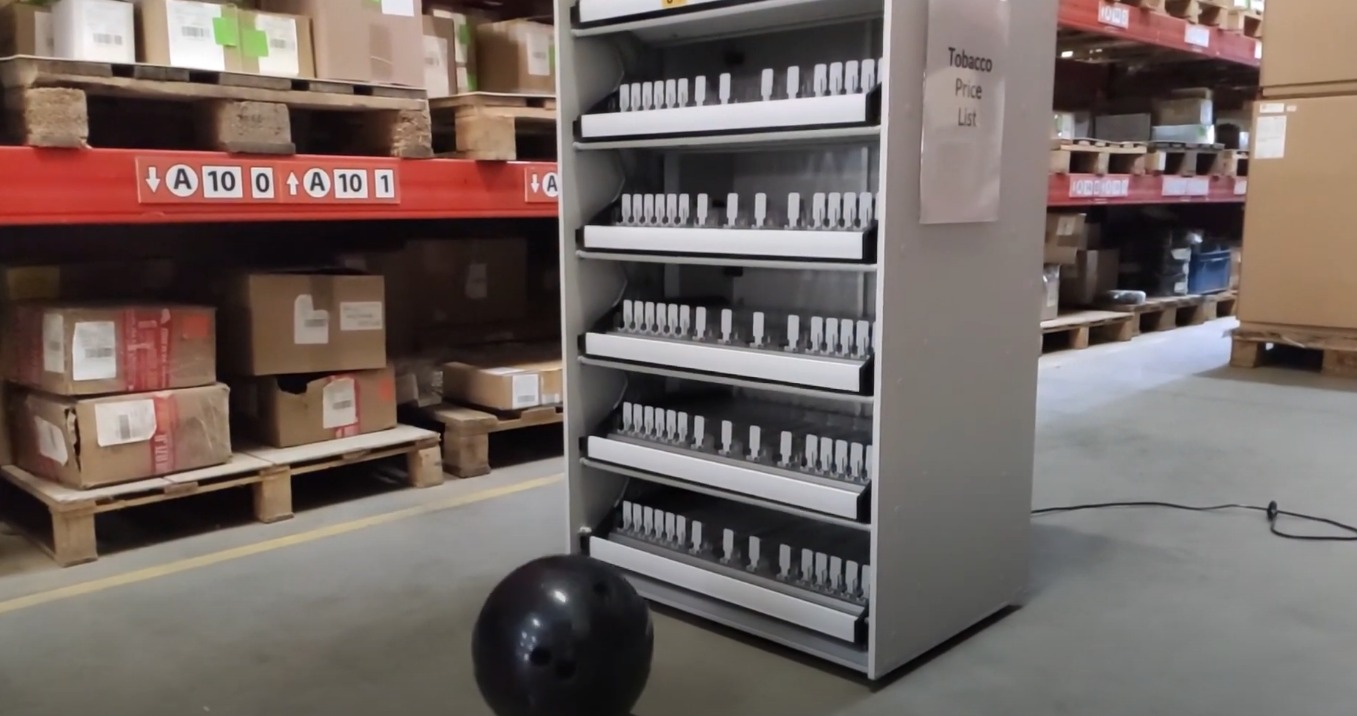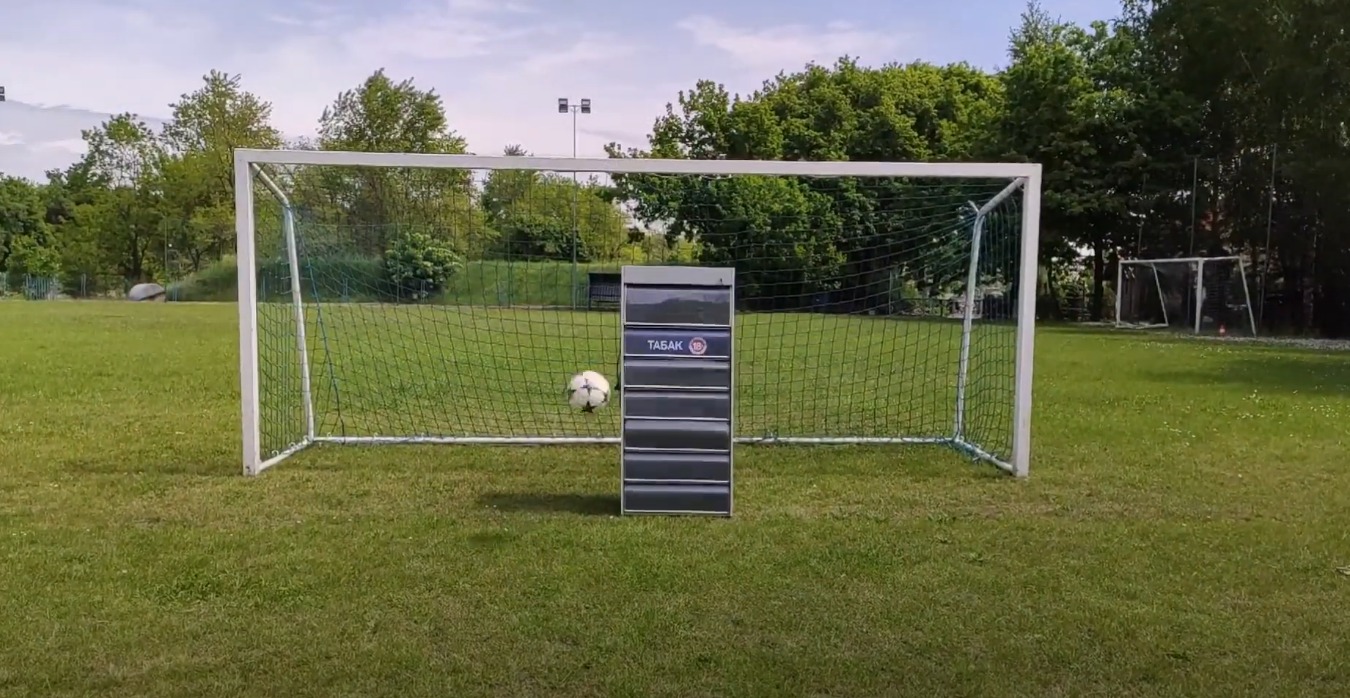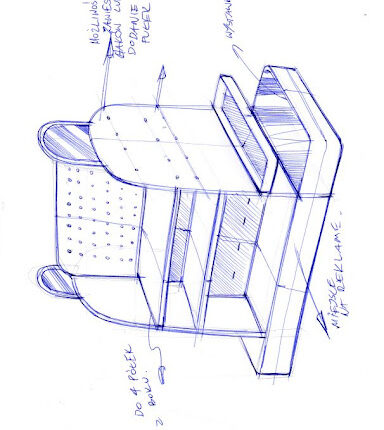Testing the durability of store furniture is something we at Perfecta take seriously. But even the most serious activity doesn’t have to be boring! Taking this to heart, we have given our Quality Control Department a free hand when it comes to inventing and conducting the craziest and most eccentric methods of testing the durability of our products.
Today we will talk to Michał Krajewski – head of the Quality Control Department, which tasks include testing the durability of store furniture, provoking failures and looking for imperfections.
Perfecta: Hi Michał!
Michał: Hi!
P: Let’s start with the character traits you think are key in your position. What are they?
M: It’s certainly good to be meticulous and have a tendency for nitpicking. It also helps to be able to see details that others don’t pay attention to.
P: Because of this, you are probably not exceedingly popular with the designers and constructors in our Company?
M: If that’s the case, they certainly don’t make me feel it! (Laughter) But the truth is that it is my duty to thoroughly evaluate everything they come up with, so I certainly don’t make their job any easier. But on the other hand, the name of our company – Perfecta – obliges, so if we want it not to be just an empty slogan, we must make sure that our products are as perfect as possible. And they know that.
As you can see, the work that the Quality Control Department does is very important in terms of the quality and durability of our products – qualities that are extremely important in the retail industry.
P: Looking at it from this perspective, your actions are crucial!
M: That’s true. It is also an important part of the process of designing and manufacturing our furniture. Many flaws and problems only become apparent after a prototype of a particular solution is in our hands and rigorously tested. After all, Perfecta’s products will function in the real world, not in laboratory conditions. In everyday use, no one is going to handle them with kid gloves, so we must be highly creative when it comes to coming up with durability tests and creating different situations that might happen to them during their operation.
One such test is the so-called “layman’s test” to which we subjected our products some time ago. This consisted in placing a piece of furniture in the Accounting Department, for example, so that the people working there could test it without having any knowledge of the functionality and technical nuances of using the furniture. This is the best way to see how a product performs in real life. And this is just one example!
P: Can you say more about the testing your department does?
M: I could talk about it for hours! (Laughter). The first group of tests is to simulate the impact of time on the mechanical components of our furniture. By “the impact of time” I mean the actions that the products will be subjected to during their normal use. Multiple daily opening and closing of drawers, raising and lowering of flaps, activation of pushers – these are all conditions under which our furniture will function for many years. And they must function perfectly!
Testing the durability of store furniture not only has an impact on their longevity and thus the satisfaction of retail chains, but also on the positive customer experience.
P: What do such tests look like?
M: Most often, they are fatigue test that involve repeating a given movement many times and seeing how the components perform. In our case it is tens or even hundreds of thousands of movements, which is supposed to simulate several years of intensive use! Of course, we don’t do this by hand. We are assisted by specially designed and constructed machines. They have pneumatic actuators that minute by minute, day by day, perform the same movement, such as opening and closing a drawer. They are connected to a counter that counts these movements. After performing a preset number of them, we check how the tested item performed in the test. If the test comes out positive, we approve the design. However, if the element did not meet the rigors of the test – we give a signal to the designers, whose task is then to redesign it or propose another solution.
P: Do you also test finished furniture?
M: Of course! We also get our hands on the finished products, and we do everything to destroy them! (Laughter). It’s great fun, especially for those who have a bit of Dennis the Menace in them; a naughty kid who likes to break everything around him. Sometimes, a little as a joke, we come up with non-standard ways to test our products. One of the most creative is the “bowling ball test.”
P: What is it?
M: It’s exactly what the name implies! You take a bowling ball of about 5 kg and let it loose with all your strength across the floor towards a piece of furniture. It’s great fun, and it’s also a good test of the structural strength and stability of our racks.
Q: What other interesting tests do you conduct?
M: An important group of tests are tests that simulate situations that can happen in everyday use of our products. One of them, for example, is being hit repeatedly by a shopping trolley. Another – lifting a rack and dropping it on the floor from various heights to simulate inattention when taking it off the pallet, or when reorganizing a store area.
Sometimes, however, we let our imagination run wild and subject our products to crazier tests. Once, to test one of the prototypes, we set the bookcase on a goal and conducted a series of penalty kicks. If a piece of furniture can withstand a round of “penalties”, it can withstand anything!
Q: So, did the prototype pass this test?
M: With flying colours!
A good example of the creativity with which Perfecta approaches product durability testing is the idea we had for testing our coffee corners. Since one of their basic features should be water resistance, we wanted to test it by submerging the furniture in the current of the Oder River. Unfortunately, for legal reasons, this test did not come to fruition, because if the submerged coffee corner broke free of its rope, it could pose a danger to navigation on this section of the river. We had to test the water resistance of our furniture in a more traditional way. You can read more about our coffee corners here: https://perfecta-retail.com/cs-coffee-station/
Q: It looks like your department has a very interesting job!
M: Oh yes! I don’t want to brag, but we probably have the most interesting job in the whole Company! We can wreak havoc to our heart’s content and get paid for it! In our department, creativity in destruction is welcome!
Q: Thank you for the interview!
M: Thanks!
As a manufacturer of store furniture, Perfecta strives to ensure that our products can withstand anything that might happen to them during their operation. This assures our customers that their store furnishings will be ready for any eventuality, zombie apocalypse included!

